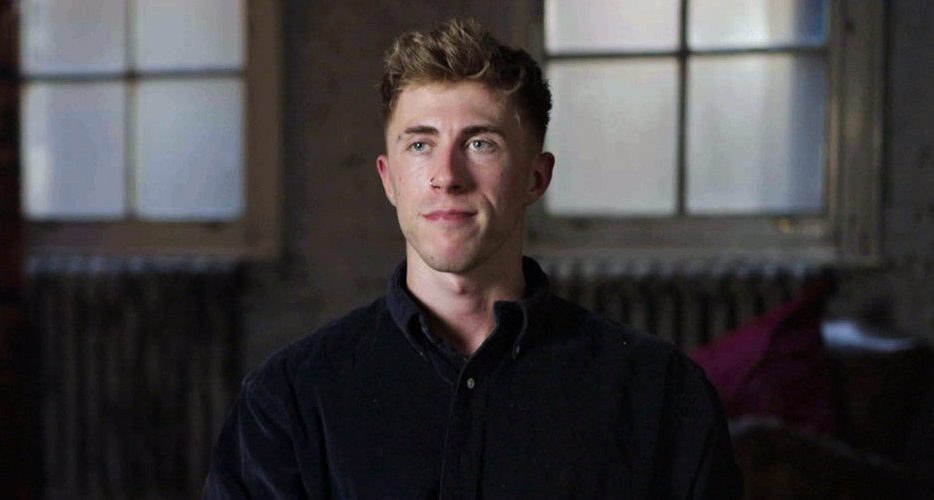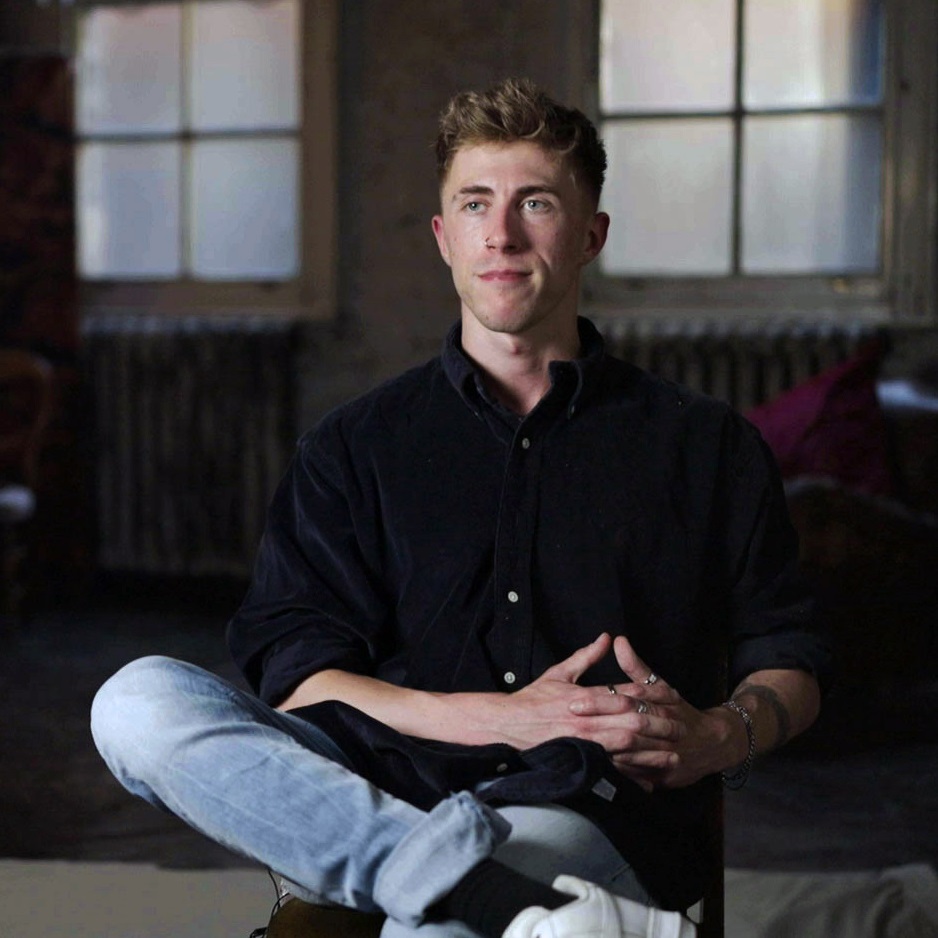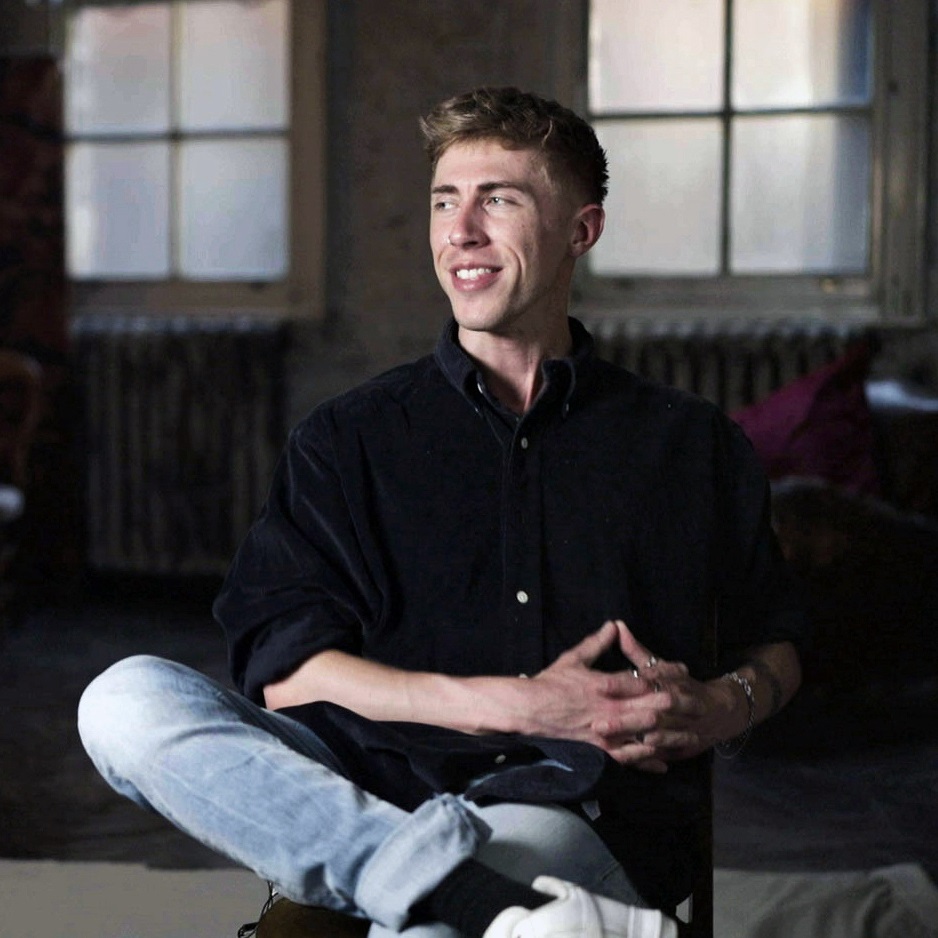‘Seeing people on TV living with HIV helped me discuss my status with those around me’
On World AIDS Day, Jay Hawkridge - who appears in Sky's new three-part documentary series Positive - reflects on the realities of living with HIV in 2021.
By Will Stroude

Words: Jay Hawkridge; Images: Sky Documentaries
When I was diagnosed with HIV in late 2019, I struggled to find contemporary resources that further my understanding of the modern day reality of the virus. Flash forward just over two years, and thankfully, the landscape of HIV & AIDS is being given a spotlight not seen in recent memory.
Channel Fours’ groundbreaking series It’s A Sin, helmed by Russell T Davis, premiered in January, and focused on the lives of young people at the very start of the UK’s HIV/AIDS crisis in the 1980’s. Following them through a decade, the show gracefully tributes the raw reaction, fear, and struggle that countless suffered due to political and societal responses to an, at the time, unexplainable pandemic.

Jay Hawkridge is one of the people living with HIV sharing their story in Sky Documentaries’ three-part series Positive, which chronicles Britain’s 40-year battle against HIV/AIDS (Image: Sky Documentaries)
Along with Netflix’s Pose, which ran for three series, and followed a similar timeline through a lens centred around New York City’s Ballroom scene, stories around HIV & AIDS are being brought to the mainstream masses. Pose especially is credited for its diverse cast, particularly trans-representation, with trans leads playing trans roles.
As someone living with HIV I found both of these incredibly encouraging, and as a door to opening up discussion around my own diagnosis with people in my life. The history and culture of our community is incredibly important, and while for my generation and the one slightly younger than myself, it can be easy to miss out, especially when education and the media haven’t particularly made any effort to teach of this. What’s struck me most since opening up and discussing my status online, mostly through TikTok, is how receptive audiences are. I once felt I was the only person in the world who would ever look at me and be able to see me, for who I am; I’m realising this couldn’t be further from the truth.
The first lockdown forced me to stop, and look inwards, understanding what HIV was teaching me, and allowed me to find an almost unlimited sense of confidence with my status. Approaching education with this assertiveness is my greatest strength in normalising the reality of HIV today. With many having me as their first introduction, showing that in 2021 you can be happy, healthy, and easily manage your status to the point where you’re unable to transmit HIV to a partner, is the representation that I needed.
Believing that my simple two-pills-a-day regime (by far the easiest part of my day as an adult in society today) would render the HIV in my body trapped, almost in a Pandora’s Box of sorts, safely unable to transmit to a partner, took a while for even me to truly trust. I remember encouraging the first partner I had post-positive-status, to get tested simply for me to see it with my own eyes; through the duration of our relationship, he was and remained HIV-negative. He was also on PrEP which I actively encouraged, for no reason other than… there’s no reason not to.
When taken as advised, PrEP reduces the risk of HIV transmission through sex from someone who’s able to transmit it by around 99%. Whilst I’m undetectable, and therefore unable to transmit, I encourage PrEP because all relationships involve trust, both partners are responsible for their sexual health. Plus, there’s a good chance that dating won’t always lead to longer-term relationships, and the introduction to PrEP could prevent transmission further in the future, and be vital knowledge passed onto friends, etc. Thankfully, PrEP is being rolled out on the NHS, with the best point-of-call being your GP or local Sexual Health Clinic.
HIV is rarely transmitted by those who know of their status, as according to National AIDS Trusts’ 2019 figures, 89% of all people living with HIV in the U.K. are virally suppressed, meaning they’re unable to transmit. The fear and stigma surrounding the ‘promiscuity’ or ‘recklessness’ of us is, well, false, and always has been. It takes one time to catch HIV.

Jay Hawkridge Image: Sky Documentaries
I’m honest with every partner about my status before engaging in any activity; partly because I know there’s nothing for me to hide about my status, and as a sign of respect. The least we owe a partner is for them to feel safe and confident. By sharing my status, I’m showing a partner that I am not just in control of my health, but also reassuring them that their trust is my priority, so that we can go into what we do with maximum pleasure. There’s nothing sexier than being on the same page.
With Sky Documentaries premiering it’s three-part series Positive, chronicling HIV & AIDS in the UK through four decades up to the present, representation of the reality of this important chapter is rising. It’s only through awareness that we can support those living with HIV, dispel stigma, and end transmission forever.
Positive will premiere on Sky Documentaries and streaming service NOW on World AIDS Day, 1 December at 9pm.
